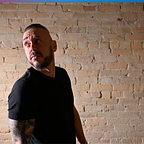I’ve seen this meme floating around a lot and while I am hard on anti-reality types, I take major issue with this stance. It’s demeaning to anyone who chooses to use their brain. I get who this meme is targeting but the message is all wrong.
People should do everything they can to form opinions which govern their lives. That is only done through research. Scientific study is something entirely different; hands-on studies and experimentation with tools that would blow our minds, and a process of experimentation that was founded to eliminate junk science.
However, science isn’t perfect and it is most certainly not formed in a silo. This is why you should always multi-source and only speak to subjects you have properly and exhaustively researched.
Here is what I consider to be the process of research …
First off, you don’t have to be a scientist to do research. You need to be a person with genuine, unbiased interest in a topic.
You then need to figure out which sites, sources, journals, podcasts, etc are well informed on both sides of the debate.
Then, you need to dig in and learn about BOTH SIDES. For every article you read or video you watch supporting your views, you must go investigate something that doesn’t. Point, counterpoint are fundamental to research.
You have to research the site or journal that you’re reading before anything. Do they have known biases? Who owns it? How do they get paid?
When looking at any information you must then investigate who is writing the article. Look at their credibility and also look at their failures. Really dig deep to find biases. It’s important to know who is paying them as well. Oh, and don’t assume someone is wrong now because they’ve been wrong before. Success is a multitude of failures tested and thrown out before finding the right pieces to form a coherent puzzle.
Then, digest the information. Look at the date the article was published, who peer-reviewed the study, how many citations they have, view those citations, really observe the language used to understand whether they are emotionally attached to the subject matter.
It can be very tricky to include the media in your research. This is because the media is, at best, that friend who embellishes. At worst, a liar. But, the media have their place in research. Use the media to explore stories from individuals that support both sides, but immediately dismiss the article if no proof is provided of the claims. The media often take people at their word. Also, follow their paper trail to ensure you independently verify the proof. This can be tricky but I find a lot of times, after something is out there, you can get answers by simply contacting those involved. A great example of this is someone sent me an ME report on a death that was due to vaccine. I called the ME’s office and no one worked there by the name listed as the ME in the article. It was true fake news from a site constantly saying they are the truth.
While you do all of this, take detailed notes. I like to take voice notes and then transcribe them later. It allows for more free-flowing thought.
Compare your notes across all sources and start to strike out any disproven, out of date, and/or biased info. Move any hardened facts over to a draft document of your findings.
Then, put all the pieces together to form your opinion.
But that’s not the last step. There are 2 very important final steps you must take …
First, reach out to junior experts in that field on BOTH SIDES and ask them to review your article. Let them know that you’ll only take their notes if they are sourced, otherwise they’re just delivering biases.
Second, never stop learning about the topic. Research never ends. This is why I don’t write about everything I ever hear about. I know what I know, and I know what I’m interested in enough to spend large amount of time researching said topic.
This meme suggests that we cannot, as every day people, do research. Not true. The problem is that not enough people do proper research.
Almost all information on this planet is reapplied theory. There is nothing wrong with you saying, “I’ve done my research” as long as you’re actually doing it properly.
And here’s the thing, sometimes the internet can provide better information than the CDC because organizations such as theirs can only present the current, available proven data. Journals and other sites are filled with new research, experiments, and very cool discoveries that could become available proven data. You must always try and stay ahead of the curve but present the information as such.
I proudly say that I did my research, because I do take the time to vet my formed opinions, and I’m not the only one. Don’t let anyone tell you otherwise. The things I know about vaccines far exceed what a lot of people I know have rattling around in their heads and I know very little compared to a Dr Fauci or Kizzy.
This is how I arrived at a 6 year article about vaccines. Now, I am no scientist and that’s why I can have tone and snark in an article but you will see that when given actual objections, I flesh them out.
The entire end of this article is anti-vaxxers trying to “get me”: https://link.medium.com/DKgjI7bejjb
